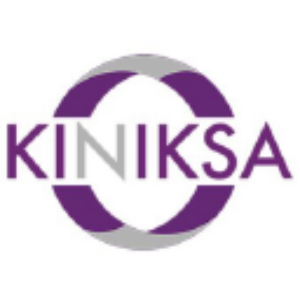Kiniksa Announces Launch of ARCALYST Named Patient Program
Rhea-AI Summary
Kiniksa Pharmaceuticals has launched a Named Patient Program for its drug ARCALYST (rilonacept) to enhance access for patients with recurrent pericarditis, CAPS, and DIRA in countries where the drug is not commercially available. This initiative, in partnership with WEP Clinical, aims to support the treatment of patients facing rare autoinflammatory diseases. CEO Sanj K. Patel expressed commitment to addressing the needs of these patients. ARCALYST is FDA-approved and has received several designations for treating recurrent pericarditis, indicating its potential importance in managing these conditions.
Positive
- Launch of Named Patient Program for ARCALYST to improve patient access.
- Partnership with WEP Clinical enhances distribution and support for healthcare providers.
- ARCALYST is FDA-approved for treating multiple rare diseases, showing solid market potential.
Negative
- None.
News Market Reaction
On the day this news was published, KNSA declined 3.92%, reflecting a moderate negative market reaction.
Data tracked by StockTitan Argus on the day of publication.
- Named Patient Program supports patient access to ARCALYST® (rilonacept) in countries where ARCALYST is not currently commercially available -
HAMILTON, Bermuda, Aug. 16, 2021 (GLOBE NEWSWIRE) -- Kiniksa Pharmaceuticals, Ltd. (Nasdaq: KNSA) (“Kiniksa”), a biopharmaceutical company with a portfolio of assets designed to modulate immunological pathways across a spectrum of diseases, today announced the launch of a Named Patient Program for ARCALYST, a weekly, subcutaneously-injected, recombinant fusion protein that blocks interleukin-1 alpha (IL-1α) and interleukin-1 beta (IL-1β) signaling.
The Named Patient Program for ARCALYST was launched in partnership with the specialist services company, WEP Clinical. The program is designed to ensure that physicians outside the U.S. can request ARCALYST on behalf of individual patients who have recurrent pericarditis, cryopyrin-associated periodic syndromes (CAPS), or deficiency of IL-1 receptor antagonist (DIRA) but reside in countries where ARCALYST is not currently commercially available.
“We are pleased to have launched Kiniksa’s Named Patient Program for ARCALYST, which is designed to facilitate broader access to this much-needed therapeutic option,” said Sanj K. Patel, Chief Executive Officer and Chairman of the Board of Kiniksa. “Recurrent pericarditis, CAPS and DIRA are rare autoinflammatory diseases with limited treatment options and we are pleased to be able to take this step to support additional patients in need outside the U.S.”
For physicians who are interested in further information or who would like to request access to the ARCALYST Named Patient Program, please contact: rilonacept@wepclinical.com.
About Kiniksa
Kiniksa is a biopharmaceutical company focused on discovering, acquiring, developing and commercializing therapeutic medicines for patients suffering from debilitating diseases with significant unmet medical need. Kiniksa’s portfolio of assets, ARCALYST, mavrilimumab, vixarelimab and KPL-404, are based on strong biologic rationale or validated mechanisms, target underserved conditions and offer the potential for differentiation. These assets are designed to modulate immunological pathways across a spectrum of diseases. For more information, please visit www.kiniksa.com.
About WEP Clinical
Established in 2008, WEP Clinical is a specialist services company that works with drug developers to help patients and physicians gain early access to medicines when no other treatment options are available. WEP Clinical has offices located in London, United Kingdom; RTP North Carolina, United States; Lisbon, Portugal; and Dublin, Ireland and possesses all the necessary licenses allowing it to meet drug access and distribution needs across all regions, worldwide. WEP Clinical is passionate about helping those in need. For more information, please visit www.wepclinical.com.
About ARCALYST
ARCALYST is a weekly, subcutaneously-injected recombinant dimeric fusion protein that blocks interleukin-1 alpha and interleukin-1 beta signaling. ARCALYST was discovered by Regeneron Pharmaceuticals, Inc. and is approved by the U.S. Food and Drug Administration (FDA) for recurrent pericarditis, CAPS, including Familial Cold Autoinflammatory Syndrome and Muckle-Wells Syndrome, and DIRA. The FDA granted Breakthrough Therapy designation to ARCALYST for the treatment of recurrent pericarditis in 2019 and Orphan Drug designation to ARCALYST for the treatment of pericarditis in 2020. The European Commission granted Orphan Drug Designation to ARCALYST for the treatment of idiopathic pericarditis in 2020.
About Recurrent Pericarditis
Recurrent pericarditis is a painful and debilitating autoinflammatory cardiovascular disease that typically presents with chest pain and is often associated with changes in electrical conduction and sometimes buildup of fluid around the heart, called pericardial effusion. Patients who have additional pericarditis episodes following a symptom-free period of 4-6 weeks are identified as having recurrent pericarditis. Recurrent pericarditis symptoms have an impact on quality of life, limit physical activities, and lead to frequent emergency department visits and hospitalizations. Data show that approximately 40,000 patients in the U.S. seek and receive treatment for recurrent pericarditis each year. Of that group, approximately 14,000 patients experience a second or subsequent event (recurrence) due to persistent underlying disease or inadequate response to conventional therapies, such as nonsteroidal anti-inflammatory drugs (NSAIDs), colchicine and corticosteroids.
Important information about ARCALYST Injection
- ARCALYST can affect your immune system and can lower the ability of your immune system to fight infections. Serious infections, including life-threatening infections and death have happened in patients taking ARCALYST. You should not begin ARCALYST if you have an infection or have infections that keep coming back. After starting ARCALYST, if you get an infection or show any sign of an infection, including a fever, cough, flu-like symptoms, or have any open sores on your body, call your doctor right away. Treatment with ARCALYST should be stopped if you get a serious infection.
- While taking ARCALYST, do not take other medicines that block interleukin-1, such as Kineret® (anakinra), or medicines that block tumor necrosis factor, such as Enbrel® (etanercept), Humira® (adalimumab), or Remicade® (infliximab), as this may increase your risk of getting a serious infection.
- Before starting ARCALYST, tell your doctor if you think you have an infection, are being treated for an infection, have signs of an infection, have any open sores, have a history of infections that keep coming back, have asthma, have diabetes or an immune system problem, have tuberculosis, or have been in contact with someone who has had tuberculosis, has or has had HIV, hepatitis B or hepatitis C, or takes other medicines that affect your immune system.
- Before you begin treatment with ARCALYST, talk with your healthcare provider about your vaccine history. Ask your healthcare provider whether you should receive any vaccines, including the pneumonia vaccine and flu vaccine, before you begin treatment with ARCALYST.
- ARCALYST can cause serious side effects:
- Medicines that affect the immune system may increase the risk of getting cancer.
- Stop taking ARCALYST and call your doctor or get emergency care right away if you have any symptoms of an allergic reaction (e.g., rash, swollen face, trouble breathing).
- Your doctor will do blood tests to check for changes in your blood cholesterol and triglycerides.
- Common side effects of ARCALYST include injection-site reactions, upper respiratory tract infections, joint and muscle aches, rash, ear infection, sore throat, and runny nose.
- Tell your doctor if you are scheduled to receive any vaccines, if you are pregnant or plan to become pregnant, and if you are breastfeeding or plan to breastfeed.
- Tell your doctor if you take other medicines that affect the immune system such as interleukin-1 blockers, tumor necrosis factor blockers, or corticosteroids.
For more information about ARCALYST, talk to your doctor and see the Product Information.
Forward-Looking Statements
This press release contains forward-looking statements within the meaning of the Private Securities Litigation Reform Act of 1995. In some cases, you can identify forward looking statements by terms such as “may,” “will,” “should,” “expect,” “plan,” “anticipate,” “could,” “intend,” “target,” “project,” “contemplate,” “believe,” “estimate,” “predict,” “potential,” “strategy,” or “continue” or the negative of these terms or other similar expressions, although not all forward-looking statements contain these identifying words. All statements contained in this press release that do not relate to matters of historical fact should be considered forward-looking statements, including without limitation, statements regarding: our belief that the Named Patient Program will provide broader access to ARCALYST through our partnership with WEP Clinical, including allowing physicians to gain early access to ARCALYST on behalf of individual patients with recurrent pericarditis, CAPS or DIRA outside of the United States; our beliefs about the mechanisms of action of our products and product candidates and that our product candidates offer the potential for differentiation.
These forward-looking statements are based on management’s current expectations. These statements are neither promises nor guarantees, but involve known and unknown risks, uncertainties and other important factors that may cause our actual results, performance or achievements to be materially different from any future results, performance or achievements expressed or implied by the forward-looking statements, including without limitation, the following: our reliance on third parties as the sole source of supply of the drug substance and drug products used in our products and product candidates; our reliance on Regeneron as the sole manufacturer of ARCALYST; our reliance on third parties to manufacture our product candidates; drug substance and/or drug product shortages; our reliance on WEP Clinical to conduct our Named Patient Program; delays, difficulty or inability to successfully execute on our Named Patient Program; the impact of the ongoing COVID-19 pandemic and measures taken in response to the pandemic on our business and operations as well as the business and operations of our manufacturers and other third parties with whom we conduct business or otherwise engage, including regulatory authorities; changes in our operating plan and funding requirements; and existing or new competition.
These and other important factors discussed in our filings with the U.S. Securities and Exchange Commission (the “SEC”), including under the caption “Risk Factors” contained therein, could cause actual results to differ materially from those indicated by the forward-looking statements made in this press release. Any such forward-looking statements represent management’s estimates as of the date of this press release. While we may elect to update such forward-looking statements at some point in the future, we disclaim any obligation to do so, even if subsequent events cause our views to change, except as required by law. These forward-looking statements should not be relied upon as representing our views as of any date subsequent to the date of this press release.
ARCALYST is a registered trademark of Regeneron Pharmaceuticals, Inc. All other trademarks are the property of their respective owners.
Every Second Counts!™
Kiniksa Investor and Media Contact
Rachel Frank
(339) 970-9437
rfrank@kiniksa.com








